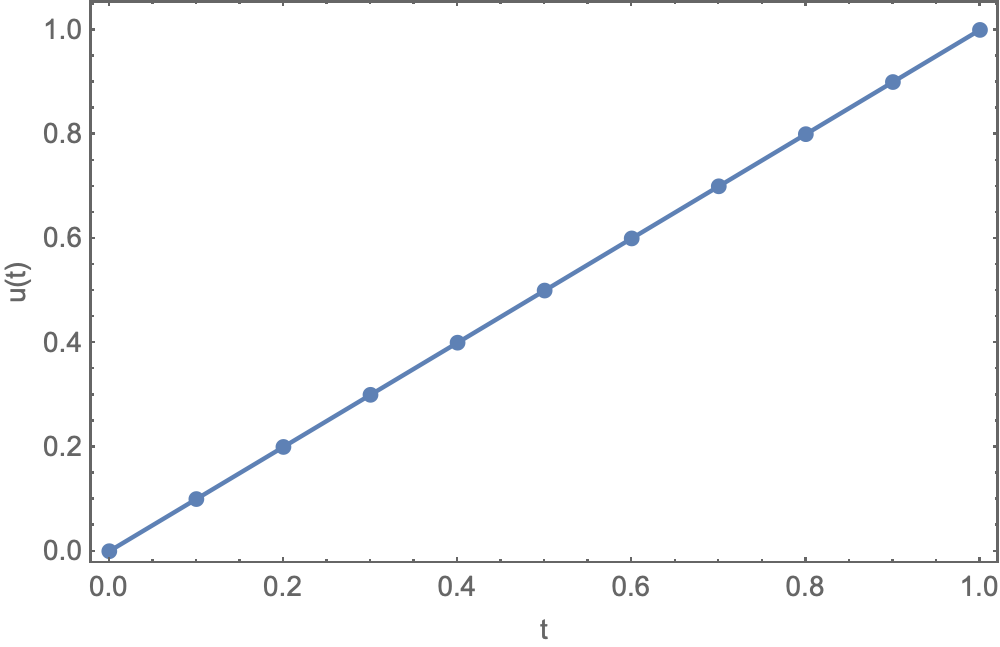Here's a general solution that works by interpolation. I'll present the method in a very slow way, and we can work on speeding it up later on if desired.
First, we make an ansatz for the function $u(t)$ on the interval $[0,1]$. Here I use a grid of $n+1$ equidistant points and a linear interpolation scheme:
n = 10;
tvalues = Subdivide[n];
uvalues = Unique[] & /@ tvalues; (* we don't care what these variables are called *)
tupairs = Transpose[{tvalues, uvalues}];
u[t_] = Piecewise@BlockMap[{((t-#[[2,1]])#[[1,2]]-(t-#[[1,1]])#[[2,2]])/(#[[1, 1]]-#[[2, 1]]),
#[[1,1]]<=t<=#[[2,1]]}&, tupairs, 2, 1]
Check that this interpolation scheme has indeed the values uvalues on the grid points tvalues:
u /@ tvalues == uvalues
(* True *)
Define the integral $\int_0^1 ds\,u(s)/\sqrt{\lvert t-s\rvert}$:
uint[t_] := Integrate[u[s]/Sqrt[Abs[t-s]], {s, 0, 1}]
Evaluate this integral on the same grid of tvalues: here is the slow part of this calculation, and could probably be sped up dramatically,
uintvalues = uint /@ tvalues
(* long output where every element is a linear combination of the uvalues *)
The right-hand side of the integral equation, evaluated on the same grid of tvalues:
f[t_] = 1/3 (-2 Sqrt[1 - t] + 3 t - 4 Sqrt[1 - t] t - 4 t^(3/2));
fvalues = f /@ tvalues
(* long output *)
Solve for the coefficients of $u(t)$: a linear system of equations for the grid values uvalues, found by setting the left and right sides of the integral equation equal at every grid point in tvalues,
solution = tupairs /.
First@Solve[Thread[uvalues - uintvalues == fvalues] // N, uvalues]
{{0, 5.84947*10^-16}, {1/10, 0.1}, {1/5, 0.2}, {3/10, 0.3}, {2/5, 0.4}, {1/2, 0.5}, {3/5, 0.6}, {7/10, 0.7}, {4/5, 0.8}, {9/10, 0.9}, {1, 1.}}
This confirms your analytic solution $u(t)=t$ but is much more general.
You don't need the // N in the last step if you prefer an analytic solution; however, numerical solution is very much faster.
ListLinePlot[solution, PlotMarkers -> Automatic]

